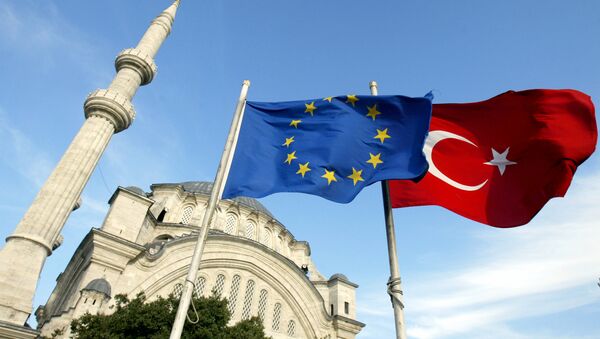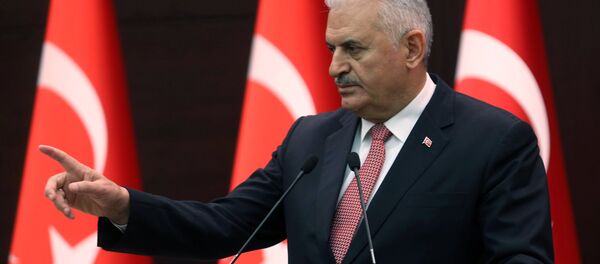Commenting on the official's ambitious deadline, Baydarol told Sputnik Turkey that he believes it to be completely unrealistic. "The current situation in the negotiations process on Turkey's accession to the EU, and the results which have been achieved in the 11 years that have passed since negotiations began, indicate that Turkey's path toward full membership in the EU will be very, very difficult."
"Everyone is aware of the difficulties in relations between Ankara and Brussels, and the harsh criticism which European parliamentarians have expressed regarding Turkey's leaders," the expert recalled. "All this suggests that Turkey's plans for accession into the EU are far too optimistic."
Moreover, the political scientist recalled that "the EU itself is experiencing a deep internal crisis, one which has led to serious concerns about its future. One of the most important aspects of the crisis is the situation around the euro. Problems have not been resolved by the transition to a single currency; the situation in Greece is proof of that. And it's not just Greece; many large EU economies are facing serious difficulties."
The third element of the emergency facing Europe is the crisis of confidence in its supranational institutions following the Brexit referendum. "The UK's decision to withdraw from the EU has led Brussels to focus not on what new members to bring into the bloc, but how to prevent other member countries from exiting it."
In other words, Baydarol noted, "Brussels' agenda for the nearest future will be focused on finding a way out of this structural crisis with these three components. It's possible that relations between Turkey and the EU will begin to warm in October 2016, the deadline Brussels has given Ankara to meet the EU's conditions for a visa-free regime. But I do not think that tensions will be completely alleviated."
"This year, 100 years after the Sykes-Picot agreement, we have once again seen an intensification of processes to redraw the map of the Middle East; all the players are pursuing their own interests, trying to benefit from this process. Of course rapprochement between Turkey and Russia has left the US concerned. That's why their chief of staff came to Turkey, and why several high-ranking US officials are coming to visit in the near future. But apart from the US, EU member countries also have their own interests in the region. Therefore, the normalization of Turkish-Russian relations, in a sense, has opened the way for a reevaluation of the interests of all parties concerned. This, in turn, has become a factor intensifying tensions."




